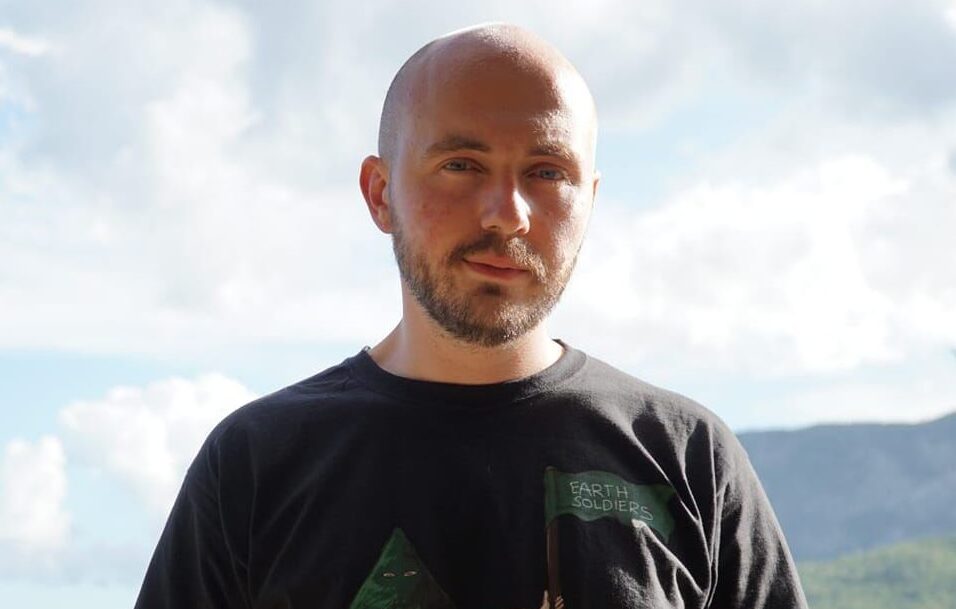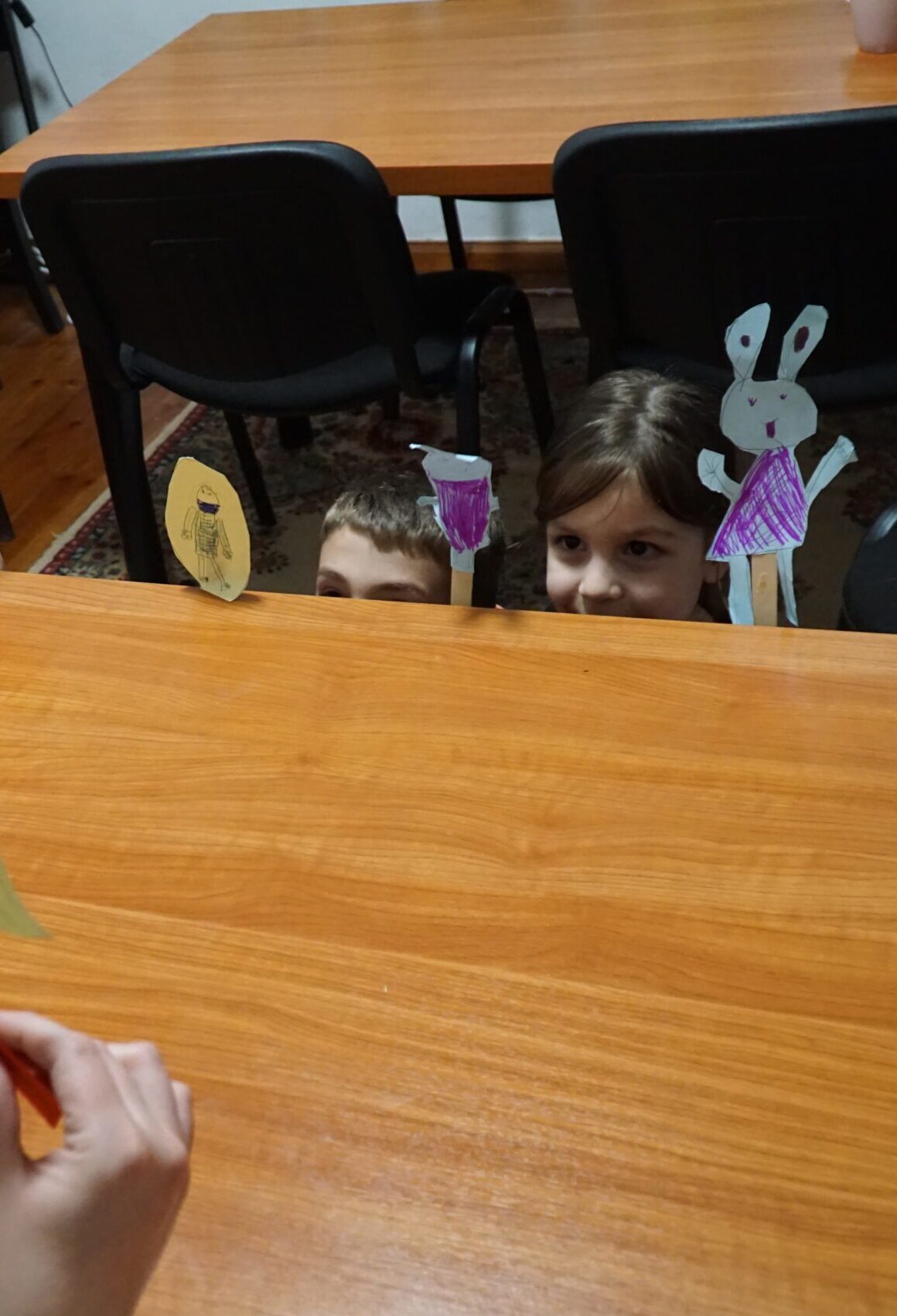Luka Minić created Earth Soldiers as a teaching program for preschool children, from 4 to 6 years old, in Montenegro. The activities he leads have a theoretical aspect, with workshops about nature, science and many other subjects. They also have a practical aspect, as during summer children go in the nature and can play while discovering the montenegrin biodiversity.
In order to highlight his activities and recent news, RISE recently had an interview with him.


Can you describe yourself, your professional activity, and your social company ?
My name is Luka Minic, english professor since 2014, I have been working at school, hotel, concierge, professor, but sometimes you get tired and want to try something for yourself. In 2021, came to me that I needed to do something. I felt an urge, and saw a public call in Tehnopolis [one of RISE’s incubator and partner], I applied, passed and first it was like a cultural centre. I am a type of person who likes to read and write. I am interested in culture, music, arts and stuff like this. Along the way, the professor inside of me shouted, it came to this that I wanted to provide help for children. After getting funds from the incubator, we got did a pilot version of our project in 2022. We had 2000 euros, with RISE we wanted to do a pilot version of the camp. Since then, I worked many jobs, I couldn’t only spend my time doing this. But starting from this year, I decided to fully do what I liked. Since February, I do teaching at the school we used for our pilot version. I did not want to do anything else but this. The annual activities started in February, we did workshops inside. The school will be working for the whole year but during summer, we’ll have these workshops in July and August. This year, we registered our initiative as an NGO. That’s more or less my story. I listened workshops about marketing, target market, thinking about the idea, won a prize, went from one place to another, cooperated with people.
I know my activity is something I like and want to do, in order to progress and succeed to. Now it’s time to shine.
What is the average age of the children in your workshops ?
Initially, wanted to work with children a little bit older. Let’s say 9–10, 14–15 later it became clear, for me, that children from pre-age school, 4–5 years old, are sponges, and learn the most in that period. Preschool most important period in life regarding learning and acquiring knowledge, it’s the age where they work the most. If you don’t put the seed of knowledge, chances are that later teens don’t understand and learn less. From start, this is the age we want to work with. Older guys and girls are more interesting, from now it’s the age.
And while leading those activities, what are children’s behaviour or apprehension of nature ?
It’s interesting, a lot of children are fearful, they fear many things. They’re not used to it, they’re maybe too protected, they see fly or a mosquito and think they will die. somehow during these workshops, we succeed a little bit to relief that fear, to just show them that nature is beautiful, that there’s nothing more perfect. All of our ecosystems, animals, insects, flowers, how land functions, it’s a real beauty. Our point is to show this to them at young age, so that they don’t fear nature in the future. There’s so much beautiful nature in Montenegro, and it’s shameful of being afraid of bugs and butterflies. But at 5-6 years old, if they understand how beautiful it is, how to recycle, compost, if they understand climate change, they won’t be fearful for the future. We have everything regarding those subjects in one package, in our school, so I hope this would help them in the future.
And regarding what you said, do you work in urban environment or in rural ones ?
We work in both. For the theoretical part and exercises, we work in a house inside the city. Regarding outdoor works, we go to the park, hills and this place called Floyd Food Factory where we intend to have camps in the summer. It’s a place 15km outside the city, with wonderful nature and a restaurant. Children can play, collect plants and herbs etc. We combine indoor and outdoor activities. In February and March, it’s cold, you cannot be outside. But as soon as sunny seasons come back, we organize outdoor activities and they can go out and play. I think children don’t have time to play, they go to school, music centres, sports, gymnastics, language school, but when I ask them “do you play ?” they don’t do it. I think when you’re a child, you learn while playing or doing arts and crafts.
Can you describe us a typical day you organized during your pilot session for Earth soldiers ?
To be honest, I will answer it like this. Usually when I walk after workshops or when I’m on day off, I’m thinking about what do to differently, things that would be happening for next year, whenever I think about it, it becomes clear to me that my mission is to educate, to let children be who they want to, listen to them and show that everything is connected, whether it’s us or nature, everything is perfect. I know they’re young, that we need to let them play, but by telling them, they acquire this mentality.
I think about all of this: if I show them that they can become who they want to be and they can succeed, maybe there’s hope for them. If we give them books to learn and read things without explanation, they will be bored and won’t be paying much attention to this. I don’t like educational system, I don’t work in schools and maybe this method is a bit non-formal, but for me, honesty is the key of real education for me.
All of our ecosystems, animals, insects, flowers, how land functions, it’s a real beauty. Our point is to show this to them at young age, so that they don’t fear nature in the future.


In the end, what do you think misses after putting your concept in practice ? What were the main issues you think you will face before the concrete finalization of your project ? whatever it can be.
The biggest challenges for us are that, since we registered as an NGO, we were looking for grants so that our activities are free of charge for children. But as soon as I started researching for possible ones, I realized not many projects, actually almost none, are regarding preschool age. Mostly they’re about teenagers, exchanges, higher education and career. It’s a little bit problematic at this age. I don’t know now where to look for possible grants, it’s a bit tricky. It’s a challenge for us and definitely an issue. As time flies by, and if we do our job well, somebody might notice it, and try to help. If we were working with teenagers, it would have been a lot easier, they could go for exchanges and find partners, we could visit other countries etc.

What do you plan do to next for Earth soldiers ? would you consolidate the things that you already implemented or will you try to find new horizons for it ?
The plan is to do summer camps during July and August, it would be about plants, how to develop practical skills and things like this, kids have to learn with their heads sometimes. From September, we will be continuing schools. On other aspects, we will try to give kids an overview of the business world. We would go with them from place to place so they can see how it’s done and give them awareness, because that’s what is waiting for them. I believe that’s really important, if they get the sense of some jobs, they’ll be more ready for it, to see how it’s done. I think that’s necessary for young age, because nobody does this. We are also planning sustainability courses with them, and some comic books, that would make a circle for us, at least for me. So, we’ll see how it’s gonna go!

